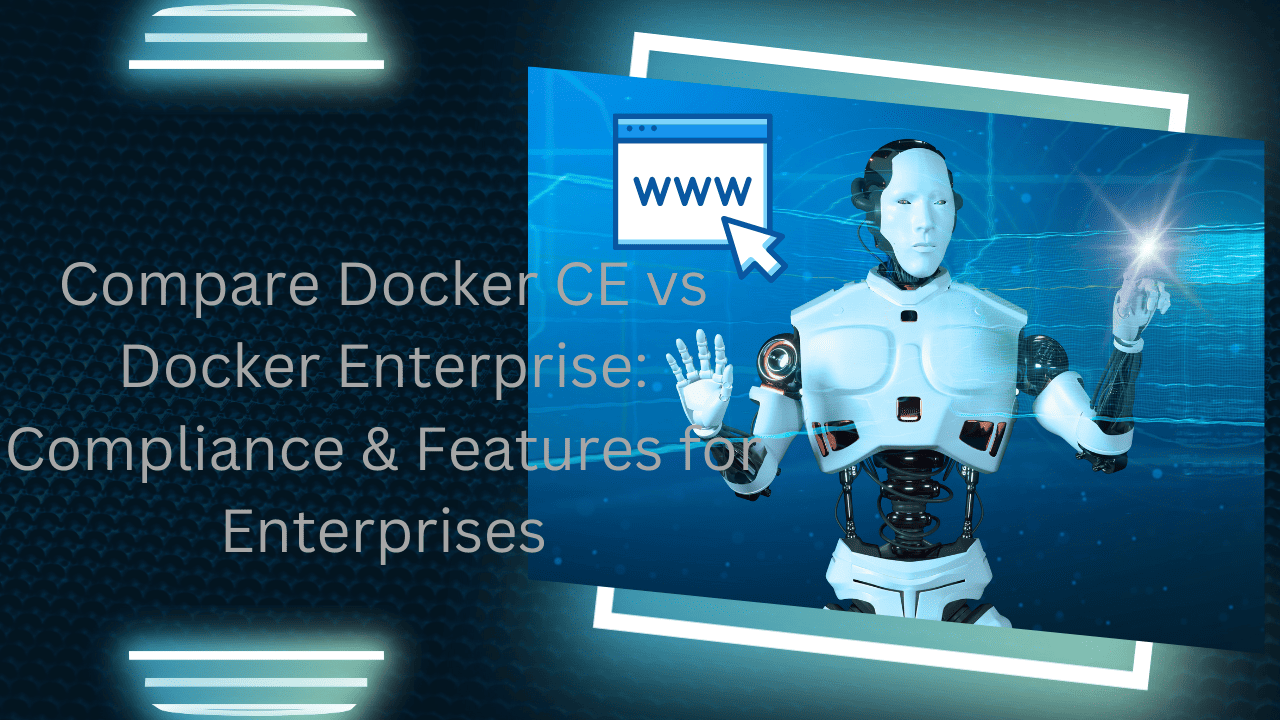
Compare Docker CE vs Docker Enterprise: Compliance & Features for Enterprises
Docker offers two main tiers of its product: Docker Community Edition (CE) and Docker Enterprise. Each version serves different needs, particularly for enterprises. Here’s a breakdown of their differences and how they align with enterprise compliance and usage requirements:
Docker Community Edition (CE)
- Target Audience: Individual developers, small teams, and open-source projects.
- Cost: Free and open-source (under the Docker Desktop Personal or Pro license, depending on usage).
- Features:
- Basic containerization capabilities.
- Includes Docker CLI, Docker Engine, and Docker Compose.
- No advanced management tools or enterprise support.
- Support:
- Community-based support (forums, GitHub issues).
- No formal service-level agreements (SLAs).
- Compliance and Security:
- No built-in enterprise compliance features.
- Limited to open-source or third-party tools for securing containers.
- Limitations for Enterprises:
- The Docker Subscription Service Agreement restricts commercial use of Docker Desktop without appropriate licensing.
- Enterprises are expected to pay for Docker Desktop licenses under the Team or Business plans, which include additional management features.
Docker Enterprise
- Target Audience: Medium to large enterprises with complex containerization needs.
- Cost: Paid (pricing depends on the number of nodes, features, and support level).
- Features:
- Advanced management and orchestration:
- Kubernetes and Swarm orchestration support.
- Role-based access control (RBAC).
- Image signing and scanning.
- Security and compliance tools:
- Built-in vulnerability scanning.
- Image repository (Docker Trusted Registry).
- Audit logging and enterprise-ready integrations.
- Policy enforcement for consistent deployment and security.
- Multi-cloud and hybrid-cloud capabilities.
- Advanced management and orchestration:
- Support:
- Commercial support with SLAs.
- Access to enterprise-grade support channels.
- Compliance and Security:
- Meets enterprise compliance standards like SOC 2, GDPR, etc.
- Suitable for regulated industries (healthcare, finance, etc.).
- Ensures compliance with corporate IT standards, including identity and access management (IAM) integration.
Compliance with Enterprise Usage
For enterprises, Docker CE often falls short due to:
- Licensing Restrictions: Docker Desktop cannot be used for commercial purposes without proper licensing under the Pro, Team, or Business tiers.
- Lack of Enterprise Features: Docker CE lacks integrated security, compliance, and management tools needed for enterprise-grade deployment.
- Support Gap: Critical for high-stakes applications; community support may not suffice.
Docker Enterprise, in contrast, addresses these needs:
- Provides tools for compliance, security, and governance.
- Integrates with enterprise ecosystems (e.g., CI/CD pipelines, IAM systems).
- Includes enterprise-grade support for uninterrupted operations.
Conclusion
- Small teams and non-enterprise applications: Docker CE might be sufficient, provided licensing requirements are adhered to.
- Enterprises: Docker Enterprise is a better choice to ensure compliance, robust security, and management at scale. It also simplifies audit requirements and supports large-scale operations.
Sodaru Technologies specializes in crafting bespoke software solutions and providing expert consultancy services. Our areas of expertise include developing custom software solutions, designing innovative mobile applications, and facilitating seamless cloud migration for businesses of all sizes. With a commitment to excellence and a passion for cutting-edge technology, we empower our clients to thrive in the digital landscape.
Sodaru Technologies Private Ltd.
3rd Floor, B-BLOCK, VAKIL SQUARE
1st Stage, BTM Layout, Bengaluru
Karnataka, INDIA - 560029
enquiry@sodaru.com
+91 6366376046